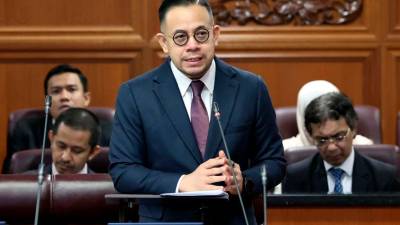PUTRAJAYA: Malaysia plans to enhance regional cooperation during its ASEAN chairmanship through the new ASEAN Framework and Action Plan for a Just and Inclusive Transition to Green Jobs (2025–2030).
Human Resources Minister Steven Sim announced this initiative, which includes establishing an ASEAN Green Jobs Regional Centre of Excellence (AGJCOE), to strengthen member states’ efforts in green economy investment, job creation, and training.
“ASEAN recognises the huge opportunity to be a model of sustainable development in the world,” he said during his opening address at the ASEAN Green Jobs Forum.
Sim acknowledged existing challenges, stating, “But we are also aware of the gaps in investments, in infrastructure and perhaps most importantly in government policies.”
He emphasised ASEAN’s need to maintain centrality and flexible cooperation despite global collaboration difficulties.
The minister highlighted ASEAN’s successful inclusive model, citing examples like the ASEAN Power Grid and cross-border digital payments.
“These are examples of how a region can tackle global problems together, build local competency, and drive green growth while ensuring national interests are safeguarded,” he emphasised.
Sim discussed Malaysia’s National Energy Transition Roadmap (NETR), which aims for net zero emissions by 2050 and has attracted 25 billion ringgit in Phase 1 investments.
This national plan is expected to generate up to 300,000 green jobs by 2050, with many positions offering above-minimum wages.
The ASEAN Framework will build on such national strategies to ensure a fair and inclusive green economic transition.
Sim concluded by highlighting ASEAN’s natural advantages: “Climate, terrain and human factor; ASEAN has the sun and wind all year long, rich biodiversity, and a society deeply connected to the earth because of our historical agrarian and seafaring culture.” – Bernama
